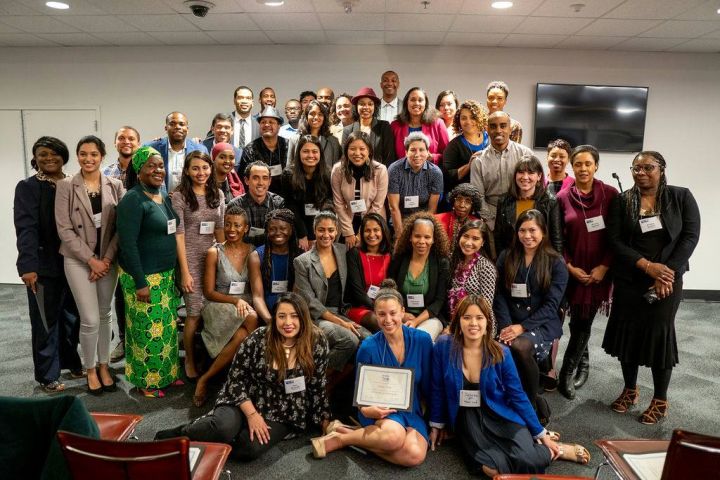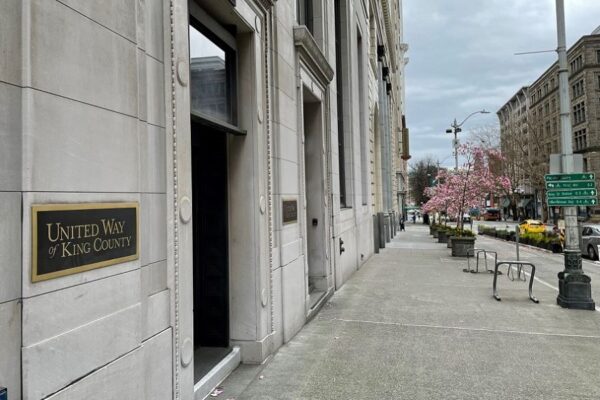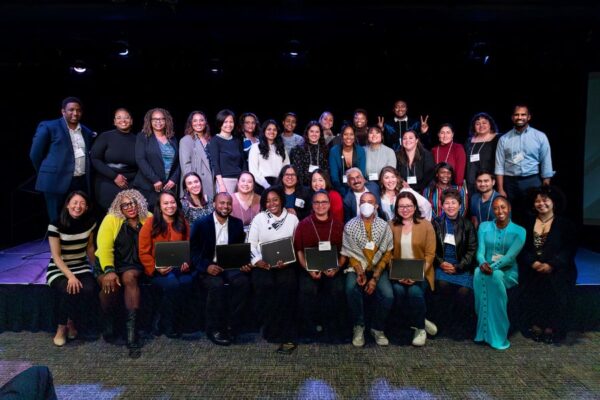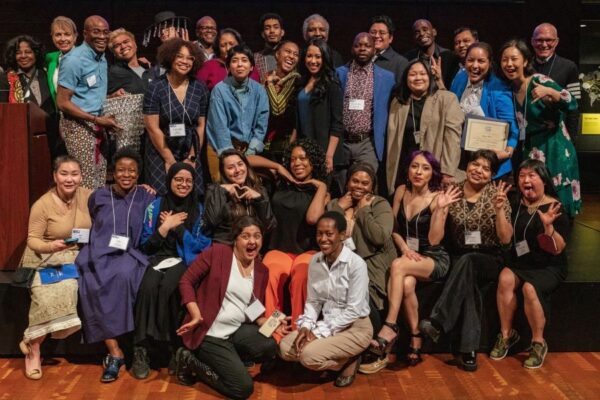Four Reasons I Love Project LEAD
Project LEAD—Leadership Effectiveness and Diversity—is a training program to prepare people of color for service on nonprofit boards of directors. More information about Project LEAD, as well as the program application (due Nov. 15), can be found on the Project LEAD page.
Editor’s note: this piece was written by our Director of Volunteer Engagement, Liahann, and is in her voice.
When I was asked to write four reasons I love Project LEAD, my first thought was “only four”? Under protest, I will proceed within the limitations.
Reason #1: Diverse People
A program for people of color has diversity? Shocker! While the term “People of Color” (POC for short) can be unifying at times, it also lumps us all together in ways that deny our full identities. Walking into Project LEAD you see, hear and feel what I can only describe as comfort. Given our region’s demographics, for many people in the program this may be the most diverse room they’ve been in while living here, and they love it. I love that they embrace this opportunity, and continue to connect—to United Way and each other—beyond the program.
Reason #2: Learning
Yes, the learning that happens in the sessions is important. But I’m talking about the learning for me, my team and United Way. Each year is a new opportunity for us. When an African-American trainer learns a term she used is a stereotype to Asian-Americans, it’s a learning moment for us all on many levels. We create a safe place in which we can learn together. And, as people of color we learn to have each other’s back. Sometimes that learning is hard. As a program that is about diversity, inclusion and racial equity, it is devastating when we get it wrong. When we learn being inclusive around gender identity is more than our acknowledging pronouns. We learn, we grow, and we bring it back to the larger organization and insist on training for all staff. And continue to insist. Because the people in Project LEAD tell us that it is important to them. Which makes it important to us. Which means we must make it important to the rest of United Way. And share with other organizations. That’s how change happens. Learning.
Reason #3: The Way Each Class Connects
I’ll be honest, for a long time I’d look at the final roster each year and wonder, “how can this possibly work?” Project LEAD brings together people who might normally never meet each other. Some have lived in Seattle their whole lives. Some moved here for a job a year ago. Ages ranging from 18 to 80. GED to Ph.D. People who work directly with those experiencing homelessness and people who work for the richest foundation and companies in the world. Bankers, community organizers, game developers, case managers, lawyers and more. Despite my panic, it’s always worked out. If people know a topic, they stepped up and helped others learn it. Those with experience working with youth or seniors are viewed as just as important as those with legal or finance knowledge. They understand that for a board of directors to be a successful, it needs multiple skills, perspectives and commitment to the greater good.
Reason #4: Project LEAD Has Been Very Good to Me.
Project LEAD graduated its first class of nineteen people in 1993. I was in the class of 1995, and a year later I joined United Way of King County to run the program. That’s a lot of years of love to capture. The staff before me, Doreen and Sandra, and the staff after me—Patrick, Louis and Nadia—have added to my life, as has every volunteer trainer. I’ve also engaged with great local companies, from our very first sponsor (Safeco) to our most recent (Microsoft and K&L Gates). I love running into alumni, finding out what you are doing. Now that there are 1,180 alumni, I may not remember all the names. But tell me you participated in Project LEAD and you’ll have made my day.
To bring all this love together, at the 2019 Project LEAD graduation, the class speaker, Adam Harrell, shared stories of his learnings and connections with his classmates. The diversity of their lived experiences, approaches to life and compassion is the true value they bring to our local community and to nonprofit boards. He summed it up well:
“This Project LEAD class is a microcosm of what the city of Seattle can represent. As some benefit and some are left behind by the booming growth of our economy, it is becoming harder and harder to find a group like this that will use their differences to not drive a divide but rather add to the greater good of service.”





Comments